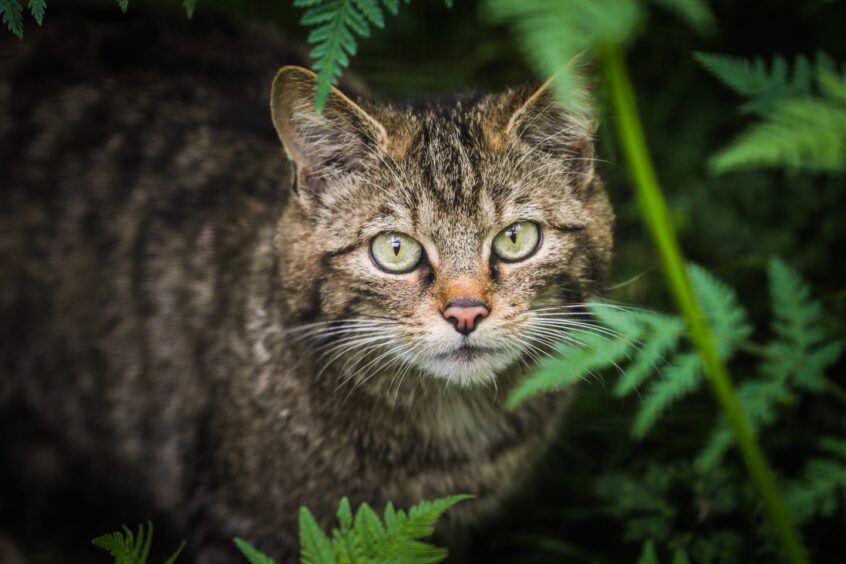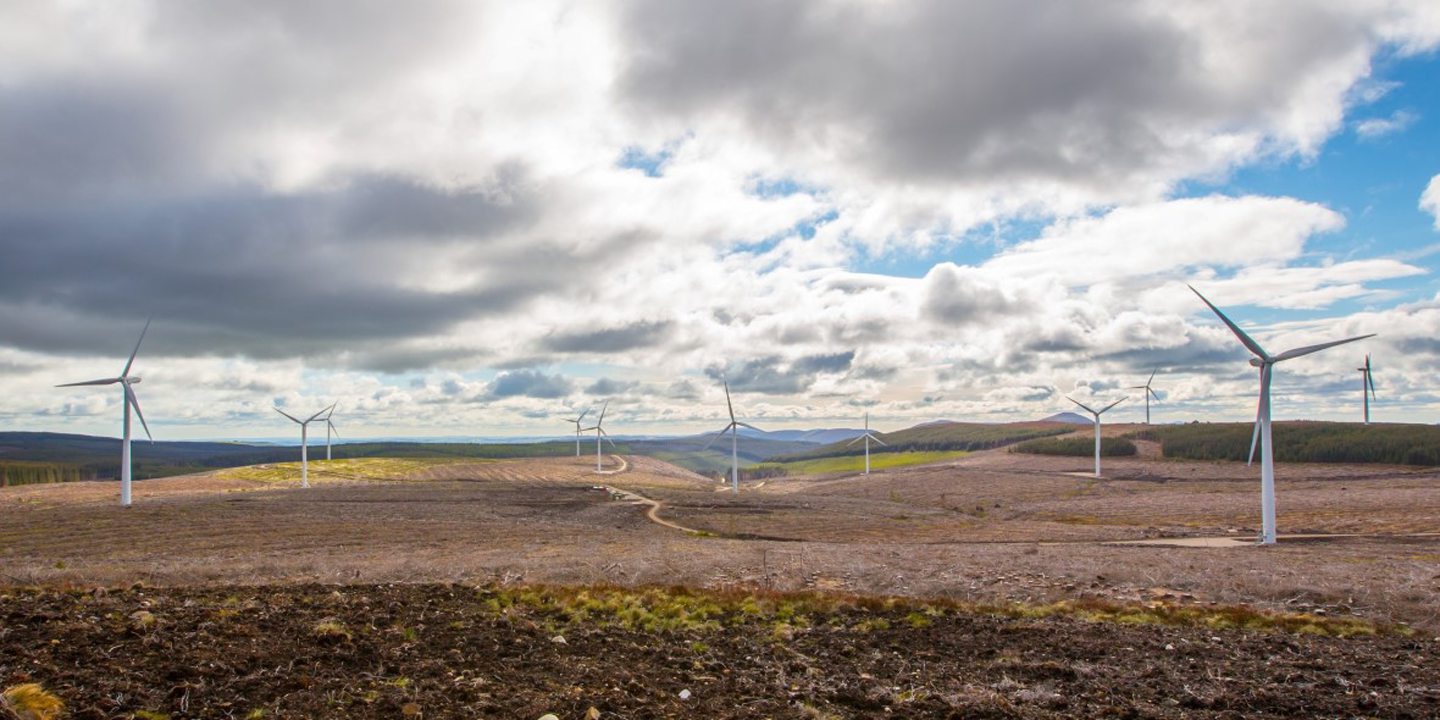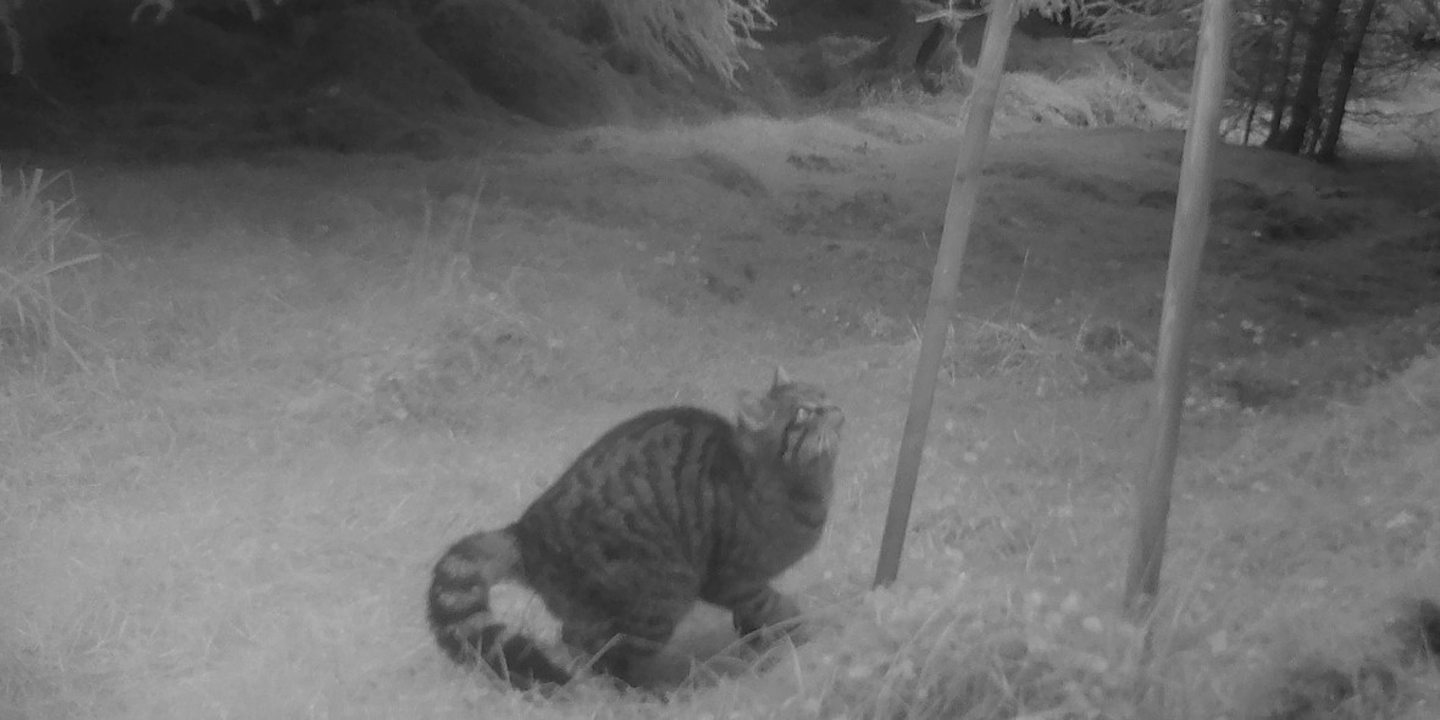
Plans for a wind farm in Aberdeenshire are set to face legal action from a conservation group concerned about wildcat protection.
Swedish power company Vattenfall received approval for its 77MW Clashindarroch II wind farm in June last year.
Located near Huntly, the wind farm will include 14 turbines with a tip height of around 590ft, generating enough electricity to power 55,000 homes.
The project is close to another wind farm operated by Vattenfall, which features 18 turbines and was completed in 2015 at a cost of around £62 million.
However, conservation group Wildcat Haven fears it could endanger the local wildcat population and has pursued a judicial review of the approval.
The petition is set to be heard on Thursday, January 18 at the Court of Session in Edinburgh.
Wildcat Haven director Paul O’Donoghue told BBC Scotland News the wind farm would be “potentially catastrophic” for the animals.
“Wildcat Haven is absolutely pro-renewables, but it’s all about the right development for the right site and this is clearly the wrong development at the wrong site,” Mr O’Donoghue said.
A spokesperson for Vattenfall told Energy Voice: “We design our wind farms so they reduce carbon emissions and protect wildlife at the same time.
“Our wind farm at Clashindarroch has already been generating electricity for over 8 years with no negative impact on the wildcat population and we have recently completed peat bog restoration and tree planting to provide further cover for the wildcats to hunt and roam.
“NatureScot (the statutory nature conservation organisation) scrutinised the Environmental Impact Assessment for Clashindarroch II and agree with our conclusions and the proposed mitigation measures.”
The Scottish wildcat is listed as critically endangered and a 2019 report by NatureScot determined the wild population in Scotland is “no longer viable”.
In June last year, the Saving Wildcats project released 22 wildcats into the Cairngorms National Park in the first-ever translocation of wildcats in Britain.
Approximately sixty wildcats will be released over the next three years as part of efforts to save the species from extinction within Scotland.
Recommended for you

 © Supplied by Vattenfall
© Supplied by Vattenfall © Supplied by Vattenfall
© Supplied by Vattenfall